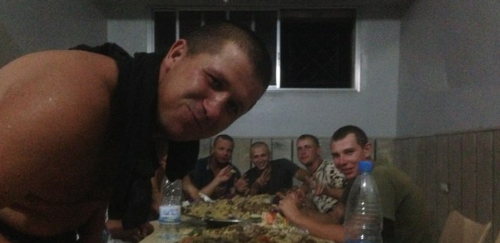PHOTO: Russian troops in northern Hama Province, November 2015
Since Russia’s military intervention with bombing and ground “advisors” last September, analysts have pondered how many of Moscow’s troops are inside Syria.
We now have our first good indication…thanks to Russia’s Electoral Commission.
The precise number of Russian military personnel in Syria is a closely guarded state secret, yet voting figures from Sunday’s State Duma elections suggest that more than 4,000 soldiers are stationed in the country, the RBC newspaper reported Thursday.
Russians took to the polls on Sunday in State Duma elections, with President Vladimir Putin’s United Russia party increasing its overall majority to 76%.
According to data released Wednesday by Russia’s Central Election Commission, 4,751 Russian citizens cast their votes in Syria, four times more than voted in the Duma elections of 2011. Russia’s military has been engaged in the Syrian conflict since 2015.
A polling station was registered at Russia’s embassy in Damascus, which registered just 193 votes, while a mobile polling station sent to Russia’s Khmeimim military base, received 4,378 votes.
[The newspaper does not explain whether other Russian personnel are outside the Hmeimim base and Damascus and thus are not included in the troop estimate.]
Russian state media broadcast that the vote at the base took place on Sunday Sept. 18 and that 100 percent of personnel voted, according to a Defense Ministry spokesman.
The figures from the Central Election Commission do not specify the percentage of civilian and military voters, but military analyst Anton Lavrov believes the vast majority are military personnel.
“Between 4,000 and 5,000 is a decent estimate of the number of Russians stationed at the base,” he said, adding that the figure included small numbers of of civilians such as cooks, technicians and industry representatives.
The ruling United Russia party took 62 percent of the vote in Syria, 8 percent higher than the national average which handed the party a majority in the Duma.

